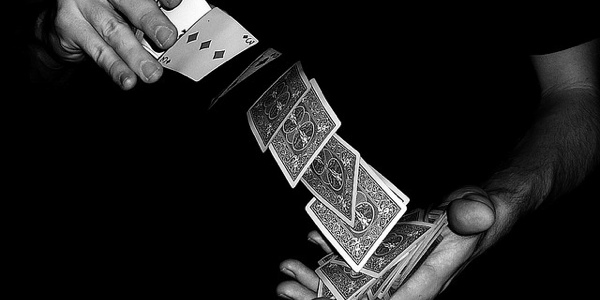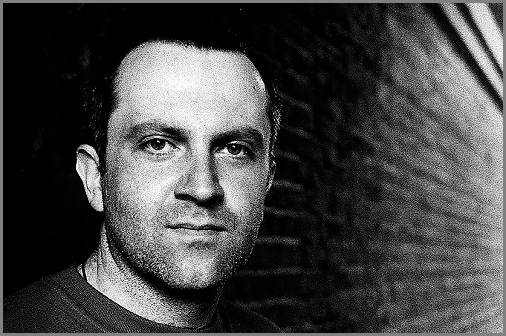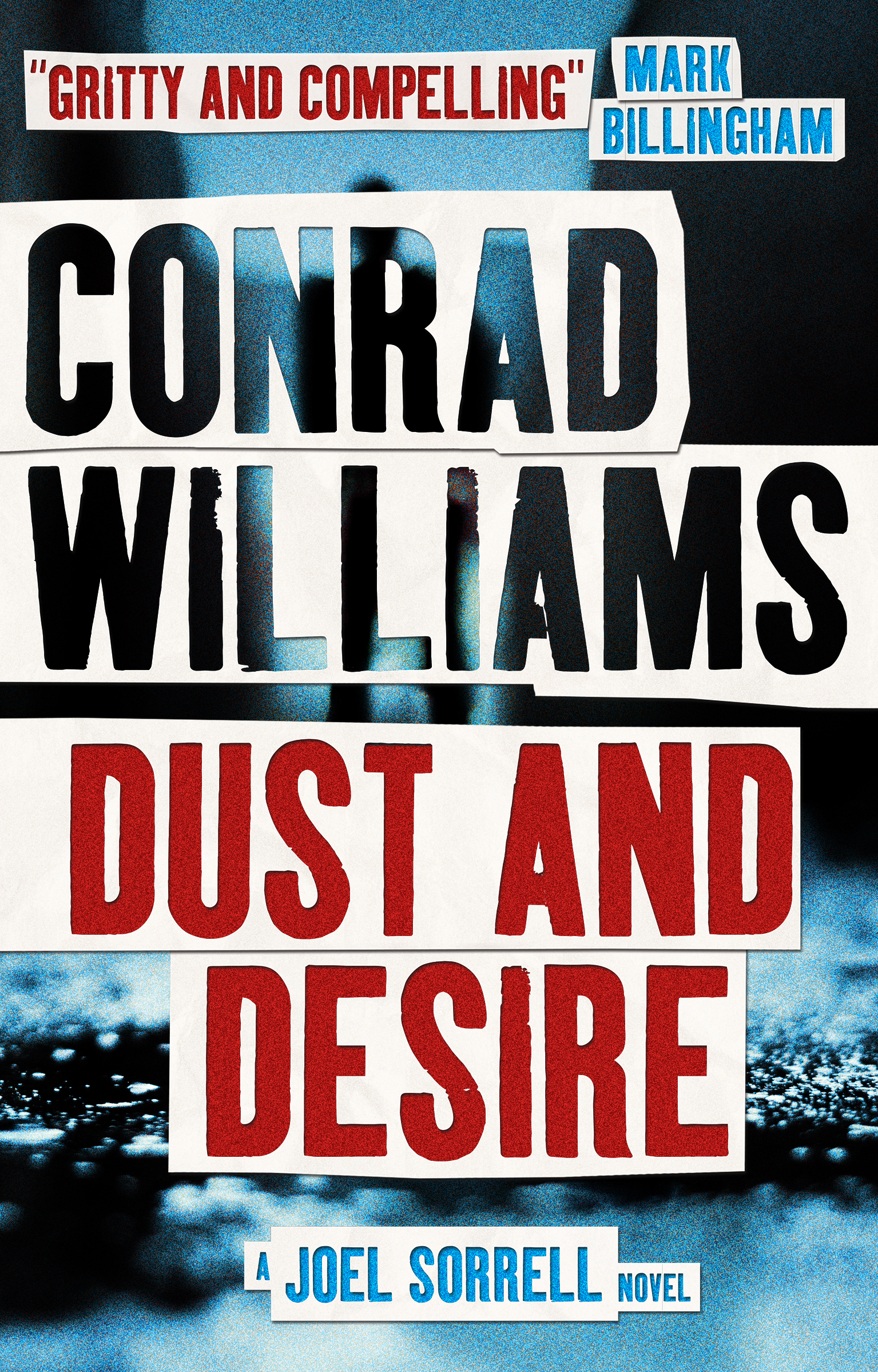You have no items in your cart. Want to get some nice things?
Go shoppingIn keeping with Mr Penumbra’s secret society, Litro Book Club members tell us about their personal cults. To get your account of a strange society or clandestine club published on Litro Online, email us at emily.cleaver@www.litromagazine.com. To kick us off, Book Club member Mike Scott Thomson tells us about what his childhood magic club taught him about writing.

When I was a teenager, I was utterly consumed by magic. Every spare moment was spent practicing tricks or sleight-of-hand, reading about new techniques, devising routines and putting them into stage shows. My parents would be forever on the end of my attempts to astound them. Every Christmas at my Grandparents’ house, after dinner, the extended family would be subjected to my latest show. Wherever I went, I was never without a magic trick concealed about my person, to be produced with a flourish at any opportune moment for another chance to impress an eager (or not-so-eager) audience. Nobody could escape my wizardry.
But it was only when I joined a club that things got really interesting.
My Granddad, well aware of my burgeoning interest, introduced me to a friend of his who happened to be a member of the local magic society. He gave me some tuition, I auditioned for the club (a cute little routine where I transformed an apple into a block of gold), and was admitted. Which, for them, was quite a shake-up. “Fresh blood”, they said that first evening. There was a guillotine in the corner of the room and I wondered what on earth they meant.
Back then, magic was not typically a young man’s game. There were no young magician’s clubs, at least not in my area. Not even the grand old Magic Circle in London had one, unlike today. These days, magic seems to be cool; it’s back on primetime television and everyone’s going crazy for this chap called Dynamo. In contrast, my group in the heart of Sussex had an average of member age of approximately 65. Merely by joining I would have brought that number down so hard I’m surprised their ears didn’t collectively pop.
For a teenager, it was an unusual way to lead a social life, but no less fun for that. Every other Thursday I would hook up with this collection of stage conjurers, children’s entertainers and card sharps. In that stark function room, illuminated by flickering yellow bulbs and adorned with plastic fold-up chairs, we would gather for the latest discussion, lecture from a visiting magician, or performing competition. There were, of course, rules – the chief one amongst them was, of course, never to reveal secrets.
Yet that was about as arcane as it got. I wonder to myself now what the junior version of me was expecting, the first time I entered into that drafty hall, dragging my audition props in a suitcase behind me. Smoke? Mirrors? Trapdoors?
The first thing the chairman always did was take a tea and coffee count. Then he would immediately forget how many teas had been requested, then lose count of the coffees, and then the teas again. A typical meeting would normally require at least four attempts.
One week there was a bit of drama. The chairman had been receiving – gasp! – complaints. I suspect those arose because he’d been audacious enough to mention his dabbling with an Ouija board the previous fortnight. Palming coins and double-lifting playing cards were one thing. The Black Arts were quite another.
After the tea and coffee count, he produced a note from his pocket and read aloud a diatribe in which he denounced the “disgusting character assassination” he’d had to endure with respect to his governance of the society. Then he looked up again at the disbelieving audience, spat “I’m off,” and strode out the door. (Two weeks later, he’d founded a rival magicians’ club in the next town.)
I don’t remember the actual magic very well, but never mind that. We all knew how the tricks were done; several of the old boys there had the same props, the same routines, they’d performed for years. What I remember is that every one of the members had their own story. Most were amateurs; accountants, estate agents, teachers, electricians. Yet when they got on that stage, or whipped out their packs of cards, for those few minutes they were pretending to be someone else. They could do miracles.
I stopped going when I moved out of the area to go to university. This brought new interests: travel, music, literature. I can still make a coin vanish, if I’m badgered sufficiently by my friends. But since the age of 19, magic for me has by and large fizzled out. Over time my knowledge has become outdated; I can no longer remember most of the insider terminology, and have forgotten many of the sleights I used to perform.
Many years later, I took up writing. I was surprised how much of my experience from my time as a youthful magician I was able to draw on. Being a member of that magic club taught me more than simply how to do tricks. Writing a piece of fiction isn’t a world away from planning and performing a magic show.
In both, there’s a narrative, a theme, things going on hidden in plain sight.
In both, there’s coordination – in magic, of movement, misdirection, stage presence – in writing, of pace, plot, characters.
In both, an illusion is being created. There’s manipulation. There’s pretending.
Several years later, when Litro called for submissions for their “Magic” issue, I couldn’t resist having a go. The result was The Real Miracle. It was accepted and I’m still proud of that story.
I guess you could say it’s partially (and I do mean partially!) autobiographical.
Email your accounts of weird clubs or societies to emily.cleaver@www.litromagazine.com – or make one up for our Flash Fiction Competition.
We pick the most exciting new titles out there for the Litro Book Club, and you’ll get them sent to you before they hit the shops. You’ll get access to live author Q&As, and the chance to see your reviews published on the site. It’s a great way of meeting like-minded book-lovers too. Join the Club

About Mike Scott Thomson
Mike Scott Thomson's short stories have been published by a number of journals and anthologies, including those from The Fiction Desk, Litro, Prole, The Momaya Annual Review, and Stories for Homes (in aid of the housing charity Shelter). 'Me, Robot,' his story to feature in The Fiction Desk anthology Crying Just Like Anybody, was also adapted for performance by the theatre group Berko Speakeasy. Competition successes include the runner up prizes in both the InkTears Short Story Competition (2012) and the Writers' Village International Short Fiction Competition (2013). In 2014 he won the inaugural 'To Hull and Back' humorous short story competition, run by author Chris Fielden. Based in Mitcham, Surrey, he works in broadcasting. You can find him online at www.mikescottthomson.com and on Twitter at @michaelsthomson.




